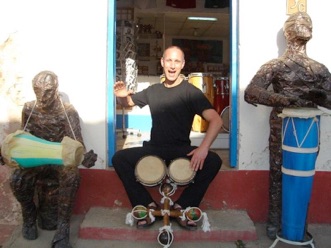Peck JR, Waxman D (2021) How to measure things. arXiv:2107.03789
Peck JR, Waxman D (2018) What is adaptation, and how should it be measured? J Theor Biol 447: 190-198. pdf
Peck JR, Waxman D & Welch JJ (2012) Hidden epistatic interactions can favour the evolution of sex and recombination. PLoS One 7: e48382. link
Peck JR & Waxman D (2010) Is life impossible? Information, sex, and the origin of complex organisms. Evolution 64: 3300-3309. pdf
Wagner GP, Kenney-Hunt JP, Pavlicev M, Peck JR, Waxman D & Cheverud JM (2008) Pleiotropic scaling and QTL data Reply. Nature 456: E4. pdf
Wagner GP, Kenney-Hunt JP, Pavlicev M, Peck JR, Waxman D & Cheverud JM (2008) Pleiotropic scaling of gene effects and the 'cost of complexity'. Nature 452: 470-472. pdf
Waxman D, Peck JR (2006) The frequency of the perfect genotype in a population subject to pleiotropic mutation. Theor Popul Biol 69: 409-418. pdf
Peck JR (2006) Altruism, sex, and inbreeding when the genotype-phenotype map is additive. J Theor Biol 239: 130-140.
Waxman D & Peck JR (2004) A one locus, biased mutation model and its equivalence to an unbiased model. Biosystems 78: 93-98. pdf
Peck JR, Waxman D & Cruikshank A (2004) Mutation and selection in a large population. Biosystems 74: 15-27.
Peck JR (2004) Sex causes altruism. Altruism causes sex. Maybe. Proc R Soc B 271: 993-1000. pdf
Peck JR & Welch JJ (2004) Adaptation and species range. Evolution 58: 211-221. pdf
Peck JR (2003) Keeping up with evolution. Nature 421:895.
Waxman D & Peck JR (2003) The anomalous effects of biased mutation. Genetics 164: 1615-1626. pdf
Peck JR & Waxman D (2000) Mutation and sex in a competitive world. Nature 406: 399-403. pdf
Peck JR & Waxman D (2000) What's wrong with a little sex? J Evol Biol 13: 63-69.
Waxman D & Peck JR (2000) The outcome of evolution when mutations are highly pleiotropic. Selection 1:181-191.
Waxman D, Peck JR (1999) Sex and adaptation in a changing environment. Genetics 152: 1041-1053.
Peck JR, Yearsley J & Waxman D (1999) Why do asexual and self-fertilising populations tend to occur in marginal environments? In C. Nehaniv (Ed) Lectures on Mathematics in the Life Sciences 26: 121-132. American Mathematical Society, Providence.
Peck JR, Yearsley J and Barreau G (1999) The maintenance of sexual reproduction in a structured population. Proc R Soc B 266: 1857-1863. pdf
Peck JR, Yearsley JM & Waxman D (1998) Explaining the geographic distributions of sexual and asexual populations. Nature 391: 889-892.
Waxman D & Peck JR (1998) Pleiotropy and the Preservation of Perfection. Science 279: 1210-1213. pdf
Peck JR & Waxman D (1997) What determines fitness when dispersal is limited? Evolution 51: 1036-1043.
Peck JR & Eyre-Walker A (1997) The muddle about mutations. Nature 387: 135-136.
Peck JR, Barreau G & Heath SC (1997) Imperfect genes, Fisherian mutation and the evolution of sex. Genetics 145: 1171-1199. pdf
Peck JR (1996) Limited dispersal, deleterious mutations and the evolution of sex. Genetics 142: 1053-1060.
Hurst LH & Peck JR (1996) Recent advances in understanding ofthe evolution and maintenance of sex. Trends Ecol Evol 11: A46-A52.
Peck JR (1994) A ruby in the rubbish: Beneficial mutations, deleterious mutations and the evolution of sex. Genetics 137: 597-606.
Peck JR (1993) Frequency dependent selection, beneficial mutations, and the evolution of sex. Proc R Soc B 125: 87-92.
Peck JR (1993) Friendship and the evolution of cooperation. J Theor Biol 162: 195-228.
Peck JR (1992) Group selection, individual selection, and the evolution of genetic drift. J Theor Biol 159: 163-187.
Peck JR (1990) The Community Design Project. The Bulletin of the International Communal Studies Association 7:10-11.
Peck JR (1990) The evolution of outsider exclusion. J Theor Biol 142: 565-571.
Peck JR & Feldman MW (1988) Kin selection and the evolution of monogamy. Science 4859: 1672-1674.
Peck JR & Feldman MW (1986) The evolution of helping behavior in large, randomly mixed populations. Am Nat 127: 209-221.
Feldman MW, Cavalli-Sforza LL & Peck JR (1985) Gene-culture coevolution: Models for the evolution of altruism with cultural transmission. Proc Natl Acad Sci USA 82: 5814-5818.
Commons ML, Woodford M, Boitano GA, Ducheney JR & Peck JR (1982) Acquisition of preference during shifts between terminal links in concurrent chain schedules. In Commons, Herrnstein, and Wagner (Eds.) Quantitative Analyses of Behavior. 391-426. Ballinger, Cambridge.
